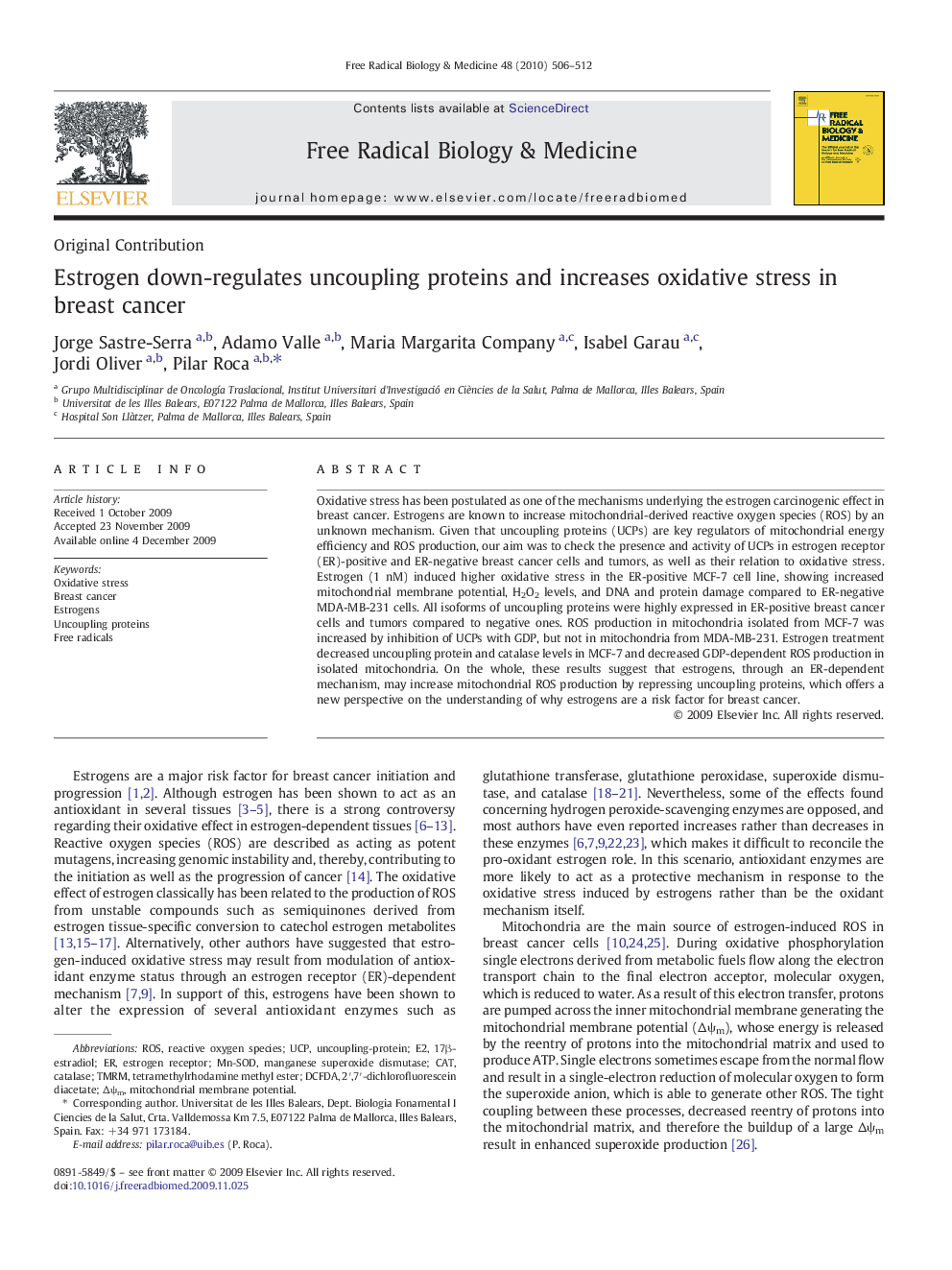| کد مقاله | کد نشریه | سال انتشار | مقاله انگلیسی | نسخه تمام متن |
|---|---|---|---|---|
| 1910268 | 1046762 | 2010 | 7 صفحه PDF | دانلود رایگان |

Oxidative stress has been postulated as one of the mechanisms underlying the estrogen carcinogenic effect in breast cancer. Estrogens are known to increase mitochondrial-derived reactive oxygen species (ROS) by an unknown mechanism. Given that uncoupling proteins (UCPs) are key regulators of mitochondrial energy efficiency and ROS production, our aim was to check the presence and activity of UCPs in estrogen receptor (ER)-positive and ER-negative breast cancer cells and tumors, as well as their relation to oxidative stress. Estrogen (1 nM) induced higher oxidative stress in the ER-positive MCF-7 cell line, showing increased mitochondrial membrane potential, H2O2 levels, and DNA and protein damage compared to ER-negative MDA-MB-231 cells. All isoforms of uncoupling proteins were highly expressed in ER-positive breast cancer cells and tumors compared to negative ones. ROS production in mitochondria isolated from MCF-7 was increased by inhibition of UCPs with GDP, but not in mitochondria from MDA-MB-231. Estrogen treatment decreased uncoupling protein and catalase levels in MCF-7 and decreased GDP-dependent ROS production in isolated mitochondria. On the whole, these results suggest that estrogens, through an ER-dependent mechanism, may increase mitochondrial ROS production by repressing uncoupling proteins, which offers a new perspective on the understanding of why estrogens are a risk factor for breast cancer.
Journal: Free Radical Biology and Medicine - Volume 48, Issue 4, 15 February 2010, Pages 506–512